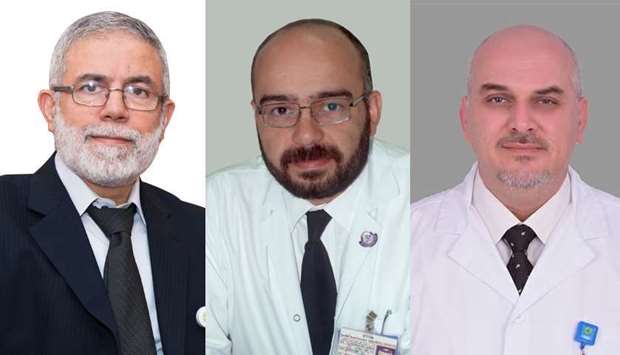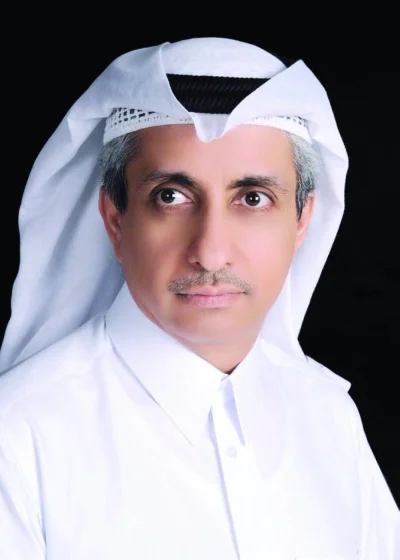With Ramadan approaching, Hamad Medical Corporation (HMC) is urging patients with chronic medical conditions, such as diabetes, kidney failure, and heart disease to speak with their doctor before beginning a fast.
Specialists from across the healthcare provider’s network of hospitals say it is imperative that patients with chronic conditions, particularly those who require daily medication to treat their illness, to seek medical advice before making any changes to their diet and medication regimes.
Prof Abdul Badi Abou Samra, chairman, Internal Medicine at HMC, says diabetics who choose to fast, need to be aware of the potential health risks.
“Type 2 diabetics with controlled blood glucose levels who don’t suffer from renal or cardiac complications can generally fast safely, provided they consult their doctors ahead of Ramadan. Patients with type 1 diabetes who take insulin, pregnant women who have diabetes are generally advised not to fast. Your doctor can help determine if it is possible for you to safely fast,” said Prof Abou Samra.
He says for diabetics who do fast, it is important they monitor their blood glucose levels regularly and drink adequate fluids during
non-fasting hours. He recommends water over juice and sugary beverages or options that include stimulants, such as coffee and caffeinated soft drinks.
Prof Abou Samra also advises patients with diabetes to eat the Suhoor meal and he recommends resting before Iftar, but notes that sleeping during this period should be avoided as some patients may be at risk for hypoglycaemia.
Dr Hassan al-Malki, senior consultant and head of HMC’s Nephrology Department, notes that for patients with kidney disease, the severity of their condition will determine if they are able to safely fast. He says while patients with acute kidney failure and those who have been diagnosed with stage three chronic kidney disease or higher should not fast, it may be possible for some patients with kidney disease to safely fast.
Dr al-Malki noted that abstaining from food and water can lead to dehydration, which can cause serious health complications for those with chronic kidney disease. He also stressed that kidney transplant patients should refrain from fasting due to their medication regime, which is required to keep the new organ working properly and the patient in good health.
According to Dr Amar Salam, senior consultant cardiologist and head of the Cardiology Department at Al Khor Hospital, it is necessary for heart patients to speak with their doctor before undertaking a fast, especially patients who require daily medication and said most cardiac patients are able to safely fast.
“While fasting is not recommended for some heart patients, including those who have recently had a heart attack or heart surgery, and patients who have narrowing or inflammation of the aortic valve, research indicates that fasting is good for the heart. Fasting not only lowers one’s risk for coronary artery disease and diabetes, but it can also cause significant changes in a person’s blood cholesterol levels, increasing HDL-C, the ‘good’ cholesterol by 30 to 40%.” added Dr Salam.
Prof Abdul Badi Abou Samra, chairman, Internal Medicine at HMC, says diabetics who choose to fast, need to be aware of the potential health risks.
“Type 2 diabetics with controlled blood glucose levels who don’t suffer from renal or cardiac complications can generally fast safely, provided they consult their doctors ahead of Ramadan. Patients with type 1 diabetes who take insulin, pregnant women who have diabetes are generally advised not to fast. Your doctor can help determine if it is possible for you to safely fast,” said Prof Abou Samra.
He says for diabetics who do fast, it is important they monitor their blood glucose levels regularly and drink adequate fluids during
non-fasting hours. He recommends water over juice and sugary beverages or options that include stimulants, such as coffee and caffeinated soft drinks.
Prof Abou Samra also advises patients with diabetes to eat the Suhoor meal and he recommends resting before Iftar, but notes that sleeping during this period should be avoided as some patients may be at risk for hypoglycaemia.
Dr Hassan al-Malki, senior consultant and head of HMC’s Nephrology Department, notes that for patients with kidney disease, the severity of their condition will determine if they are able to safely fast. He says while patients with acute kidney failure and those who have been diagnosed with stage three chronic kidney disease or higher should not fast, it may be possible for some patients with kidney disease to safely fast.
Dr al-Malki noted that abstaining from food and water can lead to dehydration, which can cause serious health complications for those with chronic kidney disease. He also stressed that kidney transplant patients should refrain from fasting due to their medication regime, which is required to keep the new organ working properly and the patient in good health.
According to Dr Amar Salam, senior consultant cardiologist and head of the Cardiology Department at Al Khor Hospital, it is necessary for heart patients to speak with their doctor before undertaking a fast, especially patients who require daily medication and said most cardiac patients are able to safely fast.
“While fasting is not recommended for some heart patients, including those who have recently had a heart attack or heart surgery, and patients who have narrowing or inflammation of the aortic valve, research indicates that fasting is good for the heart. Fasting not only lowers one’s risk for coronary artery disease and diabetes, but it can also cause significant changes in a person’s blood cholesterol levels, increasing HDL-C, the ‘good’ cholesterol by 30 to 40%.” added Dr Salam.



